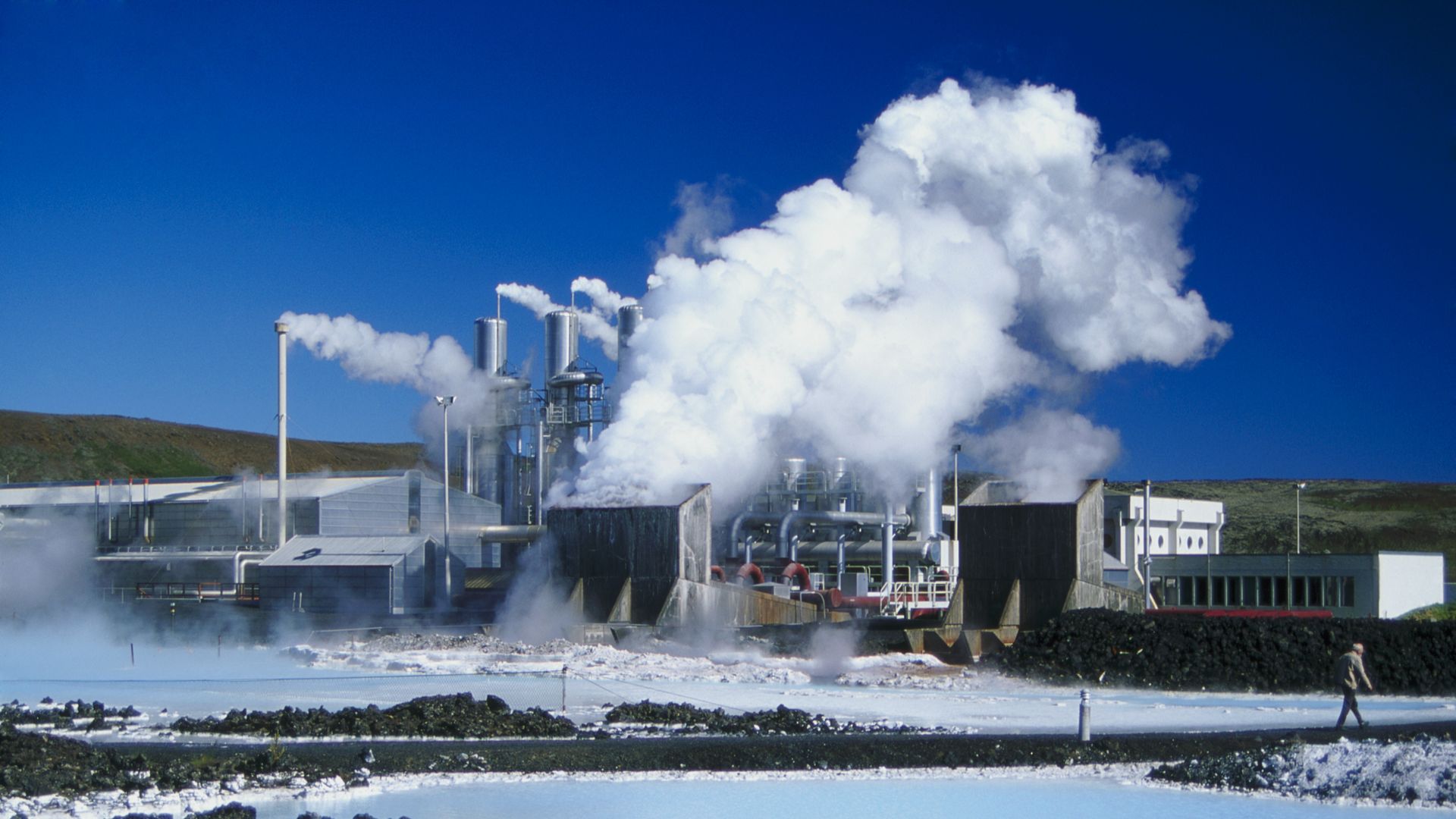
A geothermal plant in Iceland. Photo: Universal Images Group via Getty Images
Companies developing new geothermal technologies want environmental permitting changes from Congress — and lawmakers in both parties appear willing to help.
Why it matters: It’s often a forgotten renewable resource, listed as an afterthought behind wind and solar, but emerging technologies tapping into Earth's heat have potential to provide baseload power in a decarbonizing grid.
- That makes it a bargaining chip with bipartisan appeal in talks on a permitting bill.
- Using geothermal for electricity produces about one-sixth the carbon dioxide of a natural gas power plant.
Details: H.R. 1 includes several geothermal provisions that could serve as a starting point for an eventual deal.
- The bill would carve out National Environmental Policy Act exemptions for exploratory geothermal wells — a big ask for an industry looking to expand.
- It would also mandate annual lease sales for geothermal development on federal land.
What they’re saying: “I feel very comfortable that [geothermal] will be included in whatever improvements we make to the permitting process,” Sen. John Hickenlooper told Axios.
- And Sen. Lisa Murkowski said: “I get frustrated with geothermal, because I view this as an extraordinary renewable resource that has such promise in so many different areas. But we don't do enough with it.”
Context: Geothermal wells have been tapped for decades in the U.S. It’s been a limited power source because it requires a highly specific set of geological conditions — heat, water and permeable rock.
- But emerging technologies — generally known as enhanced geothermal systems, or EGS — enable development in less-than-ideal conditions.
- Companies developing that tech hope to greatly expand geothermal’s footprint, and they’ve attracted big private-sector investment in recent years.
- They’ve won some recent battles on the Hill, too, with the bipartisan infrastructure law pumping $84 million into EGS demonstration projects.
Zoom in: The geothermal provisions of H.R. 1 would be a “good start,” said Tim Latimer, CEO of startup Fervo Energy.
- “It's actually much more difficult to drill a geothermal well on federal lands than it is to drill an oil and gas well,” he told Axios. “No one I ever talk to thinks that makes any sense at all, but it seems to be a really big sticking point to try to get that changed.”
- EGS companies are also calling for more in annual appropriations at the Energy Department.
- Despite getting funding from the infrastructure law, Latimer said, “geothermal historically has gotten a very, very tiny fraction of what nearly every other energy resource gets when it comes to demonstration funding or DOE appropriations."
Yes, but: Funding requests will likely run headlong into a constrained budget process, as Republicans seek steep cuts in debt ceiling talks.
- Latimer also pointed to another aspect of the permitting debate that’s already a partisan sticking point: agency staffing.
- “One of the biggest barriers we find is not just the laws on the books, but the appropriations to hire, train and motivate the staff to review projects in a timely fashion,” he said.
- Progressives on the Hill have raised that idea repeatedly. But it’s proved a tough sell with Republicans, who seek larger changes to environmental laws like NEPA.
Our thought bubble: Geothermal’s technological and financial overlaps with oil and gas could prove a selling point.
- Fervo recently got a $10 million investment from Devon Energy, and its drilling tech is similar to what’s used for oil and gas.
- That isn't lost on geothermal’s Hill supporters: “From a practicality standpoint, you've got people trained and understand the technology and probably can bring new innovations,” Rep. John Curtis told Axios.
